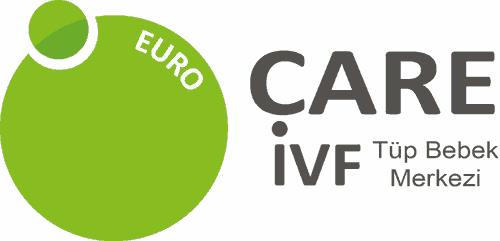
Planning Your IVF Abroad at EuroCARE IVF
EuroCARE IVF in Cyprus offers comprehensive and affordable fertility treatments for national and international travelers. From helping you plan your initial consultation, to booking your hotel stay, to confirming your baby’s heartbeat, our dedicated team guides you through each step, making your journey to parenthood as smooth as possible.
Doing IVF Abroad: Your Step-by-Step Guide
Here’s a treatment timeline and overview of what you can expect during your IVF treatment abroad with EuroCARE IVF:
IVF treatment timeline:
- Initial consultation
- Pre-treatment testing
- Day 1: Start of menstruation
- Day 2: Begin stimulation injections
- Day 9: Fly to Cyprus
- Day 10/11: Initial scan and hCG trigger injection
- Day 13: Egg and sperm collection
- Day 16: 3-day embryo transfer, OR
- Day 18: 5-day embryo transfer (blastocyst transfer)
Note: If you choose to complete the full IVF process abroad in Cyprus, you’ll arrive on Day 1, 2, or 3 of your menstrual cycle and stay approximately 18 days.
Step 1 – Initial Consultation
Your journey begins by contacting our Patient Coordinators to schedule your free virtual consultation. This consultation is your opportunity to ask questions and gain a full understanding of your IVF treatment abroad, from start to finish. You can reach out through our contact form, request a free virtual consultation, or contact us to discuss your IVF abroad options and schedule your consultation. During this consultation, we provide a detailed breakdown of treatment costs, required tests, and the entire IVF process at our clinic in Cyprus. We may also provide you with forms to complete. If needed, a combined contraceptive pill may be prescribed at this time to help you regulate your cycle, allowing you to better plan your IVF treatment abroad in advance.
Step 2 – Pre-Treatment Testing
Before starting your IVF treatment, certain tests are essential to assess your fertility levels and determine the appropriate medication dosages. These tests can be completed either at home or at our IVF clinic in Cyprus, and they include:
- Hormone Blood Tests: AMH, TSH, and Prolactin levels
- Additional Blood Tests: Prothrombin Time (PT), Complete Blood Count (CBC), International Normalized Ratio (INR), and Activated Partial Thromboplastin time (aPTT )
- Infectious Disease Testing: HIV, HBsAg, HCV, VDRL
- Transvaginal Ultrasound: Antral Follicle Count to assess ovarian reserve
- Semen Analysis for Partner: Evaluates sperm quality
After these tests are completed, you’ll be asked to track the start of your menstrual cycle so we’ll know when it’s the appropriate time to begin your stimulation medication.
Step 3 – Stimulation Medication
To stimulate egg production, subcutaneous injections are administered according to the first day of menstruation and personalized protocol based on your pre-treatment test results. Our IVF specialists prescribe and guide you on the correct medication dosage to take before arriving in Cyprus. Once in Cyprus, additional medications may be prescribed to ensure optimal stimulation and egg maturation.
Step 4 – The IVF Process in Cyprus
If you’re not already in Cyprus, plan on arriving and staying a minimum of 8 days, including travel time. If you can plan to stay 10 days, that’s even better. While in Cyprus, you can expect:
- Initial Scan and Trigger Injection. Upon arrival, another transvaginal ultrasound is performed to assess follicle development. If the eggs are ready, a trigger injection will be administered to complete egg maturation. Eggs are collected approximately 34-36 hours later.
- Egg and Sperm Collection. On the day of collection, you’ll visit the clinic for a quick and minimally invasive egg retrieval procedure. Under light sedation, eggs are collected using a fine needle guided by ultrasound. Meanwhile, a fresh sperm sample is prepared for fertilization, either from your partner or a donor.
- Fertilisation Using ICSI. Our IVF specialists use Intracytoplasmic Sperm Injection (ICSI), where a single sperm is injected into each egg, to ensure fertilisation. After 24 hours, we’ll update you on the fertilisation progress and embryo quality.
- Embryo Transfer and Cryopreservation Options. On day 3 or day 5 (blastocyst stage), our embryologist selects well-developed embryos for transfer. This painless procedure involves placing the embryos in a soft catheter and guiding them into the uterus. If desired, additional high-quality embryos can be cryopreserved in our embryo bank for future cycles, allowing you to maximize your chances with subsequent transfers if needed.
Step 5 – Pregnancy Confirmation
Following embryo transfer, hormonal support (such as progesterone injections or suppositories) is continued to enhance implantation. A blood test for beta hCG—the most accurate test for early pregnancy—is scheduled 12 days after the embryo transfer. A follow-up ultrasound 2-3 weeks later confirms pregnancy and visualizes the fetal heartbeat. These tests can be completed at home, after leaving our IVF clinic in Cyprus.
Why Choose EuroCARE IVF for Your Fertility Treatment Abroad?
- Exceptional IVF Clinics Abroad: EuroCARE IVF is a leading clinic in Cyprus, providing top-tier IVF treatment abroad with high success rates.
- Transparent and Affordable IVF Abroad Cost: Our all-inclusive IVF Packages are designed to provide exceptional care and value, making fertility treatment abroad a feasible and affordable option.
- Comprehensive Care in a Beautiful Location: Enjoy the tranquility of Cyprus while receiving advanced care from our experienced team, making your IVF treatment abroad an enjoyable, stress-free experience.
Ready to Plan Your Stay for Your IVF Journey Abroad?
Rest assured, we’ll go to any lengths to help you navigate the process of planning your journey to parenthood with us. In addition to offering our all-inclusive IVF Packages that combine your hotel stay, transportation, and fertility treatments together in one affordable bundle, we’ve also provided a map of nearby hotels, car rental companies, restaurants, and more, so you can quickly and easily book the perfect accommodations to suit your specific wants and needs.
The primary airport in North Cyprus is Ercan Airport. While there are no direct flights to North Cyprus, flights to Ercan make a brief stopover in Turkey. In most cases, your baggage will transit directly, making the transfer smooth, with layovers generally under two hours. Some flights may simply pause for passengers to board and disembark without requiring a plane change..
Ercan Airport is serviced by Turkish Airlines and Pegasus, with Turkish Airlines offering connections from most international destinations.
Alternatively, our patients can fly directly to Larnaca Airport in the South of Cyprus. From Larnaca, it’s approximately a 1.5-hour drive to EuroCARE IVF Clinic, providing an easy and convenient route to reach us.
For an additional cost, we can arrange a trusted and reputable taxi service to pick you up and drop you off at the airport. Simply ask about this service when speaking with one of our Patient Coordinators.
Start Your IVF Journey Abroad
EuroCARE IVF makes planning your fertility treatment abroad simple and supportive. Contact us today to learn more about IVF clinics abroad, the IVF process, and our customized packages for patients doing IVF abroad.
Every step of the way, we care at EuroCARE.
